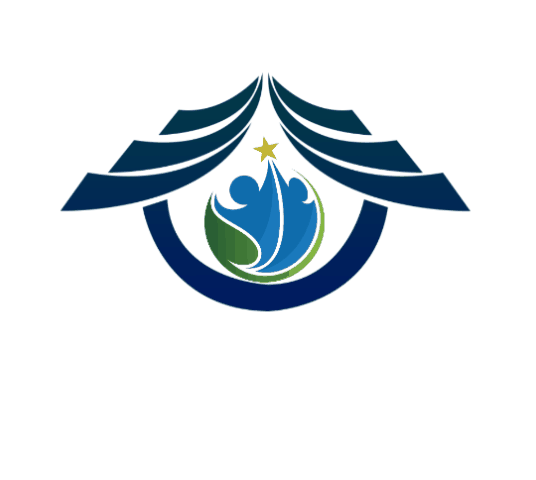Copyright Infringement in India

Copyright Infringement - Overview
Copyright infringement occurs when someone uses another’s original creative work without permission or authorisation. In India, copyright is governed by the Copyright Act of 1957 and its amendments.
When someone reproduces, distributes, displays, or performs copyrighted work without the owner’s consent, they infringe on the owner’s rights. For example, copying music, movies, books, or other creative works without permission, using photographs, videos, or graphics without permission, or uploading or sharing copyrighted content online are examples of copyrighted content.
In India, copyright owners have the exclusive right to reproduce, publish, and sell their work. Any unauthorised use of copyrighted material violates the owner’s rights and could result in legal action, including civil and criminal penalties. Before using another’s creative work, it is important to obtain the appropriate permissions and licenses to avoid copyright infringement. Obtaining written consent from the owner, obtaining a license, or using works in the public domain or covered by fair use are all ways to accomplish this.
What Amounts to Copyright Infringement?
Copyright infringement means using, copying, sharing, or displaying someone’s creative work without permission. This includes using a part of their work in your own creation, copying their work or sharing it with others without permission. Copyright laws protect different types of creative work, such as books, music, movies, paintings, photos and software. To avoid breaking these laws, you should always ask for permission before using someone else’s work. If you’re caught breaking these laws, you could face serious penalties such as fines or lawsuits. It’s important to know what’s considered copyright infringement and take steps to avoid it.
What Documents You Need to Fight a Copyright Infringement?
- A copy of the original copyrighted work
- Proof of ownership or authorship of the copyrighted work
- Evidence of the alleged infringement, such as copies of the infringing work or website links
- A cease and desist letter or DMCA takedown notice sent to the infringing party
- Any correspondence or communication with the infringing party, including emails or letters
- Witness statements or affidavits from anyone who has knowledge of the infringement
- Any contracts or agreements related to the copyrighted work, such as licensing or distribution agreements
- Any relevant copyright registration certificates or applications
- Documentation of any damages or financial losses incurred as a result of the infringement, such as sales reports or financial statements.
Types of Copyright Infringement in India
Here are some of the types of copyright infringement in India:
- Direct infringement: This occurs when someone copies or reproduces a copyrighted work without permission from the owner.
- Indirect infringement: This occurs when someone contributes to or facilitates copyright infringement, such as providing equipment or services that enable the copying or distribution of copyrighted material.
- Secondary infringement: This refers to the unauthorised sale or distribution of copyrighted works by someone other than the copyright owner.
- Plagiarism: This occurs when someone presents someone else’s work as their own without giving proper credit or permission.
- Piracy: This involves the unauthorised reproduction or distribution of copyrighted material, such as music, movies, or software.
- Infringement on moral rights: This refers to the violation of the non-economic rights of the copyright owner, such as the right to be recognised as the author of a work or the right to prevent any distortion or mutilation of a work.
Who Can Initiate Proceedings for Copyright Infringement?
- The owner of the copyright: The owner, whether an individual or a corporation, is entitled to take legal action against anyone who infringes on their copyright.
- Exclusive licensee: If a person has an exclusive license to use the copyrighted work, they can initiate legal proceedings against anyone who infringes on their rights.
- Assignee: If a person has assigned the copyright to another person or entity, that assignee can initiate legal action against anyone who infringes on the copyright.
- Legal representatives: If the copyright owner has passed away, their legal representative or estate can initiate legal proceedings on their behalf.
- Copyright Society: In India, there are several copyright societies, such as the Indian Performing Rights Society (IPRS) and the Phonographic Performance Limited (PPL), which are authorised to collect royalties on behalf of copyright owners. These societies can also initiate legal action against copyright infringement.
Copyright Infringement Cases in India
Bata India Ltd vs. Pyare Lal & Anr. (1985)
In this case, Bata India Ltd filed a lawsuit against Pyare Lal & Anr. for copying its design of shoes. The court ruled in favour of Bata India and held that the design of the shoes was unique and original, and therefore entitled to copyright protection.
Delhi Public School Society vs. D.A.V. Public School (2019)
In this case, the Delhi Public School Society sued D.A.V. Public School for infringing on its copyright by using its logo and name without permission. The court ruled in favour of the Delhi Public School Society and held that the use of the logo and name without permission amounted to copyright infringement.
Why Monitoring of Infringement and Timely Action Important?
Protecting intellectual property:
In order to protect the intellectual property of the copyright owner, it is essential to monitor infringements and take appropriate action in a timely manner.
Preventing financial loss:
The infringement of a copyright can result in financial loss to the owner of the copyright since the infringer may be profiting from the unauthorised use of a copyrighted work.
Maintaining market share:
It is possible for the owner of a copyright to lose its market share if no action is taken against infringement.
Establishing legal ownership:
The registration of copyright as well as taking timely action against infringement, can assist in establishing legal ownership of a creative work.
Maintaining a reputation:
Copyright infringement can adversely affect the reputation of the copyright owner and their work. It is possible to prevent this from occurring by taking timely action.
Avoiding legal consequences:
In the event that you fail to take action against an infringement, you may lose your right to bring a lawsuit or be liable for damages.
Procedure for Initiating Proceedings
- Notice of Infringement: The first step is to notify the infringer of the trademark violation and ask them to stop the infringing activity. This is usually done by a lawyer representing the trademark owner.
- Filing a Suit: If the infringer fails to stop the infringement, the trademark owner can file a civil suit for trademark infringement in a court having jurisdiction. The suit must be filed within three years from the date of infringement.
- Filing a Complaint: If the infringement is criminal in nature, the trademark owner can file a complaint with the police or a magistrate under the Indian Penal Code. The complaint must be filed within three years from the date of the infringement.
- Evidence and Trial: The next step is to gather evidence to support the trademark owner’s claim. The case will then proceed to trial, where the trademark owner will need to prove that their trademark was infringed upon.
- Remedies: If the trademark owner is successful, they can obtain the appropriate remedies, such as an injunction, damages, or criminal penalties.
Civil and Criminal Remedies in Case of Trademark Infringement and Process for Initiating Such Proceeding
Civil Remedies
- Injunction: A court order to stop the infringing activity
- Damages: Compensation for losses incurred due to the infringement
- Account of profits: Recovery of profits made by the infringer through the unauthorised use of the trademark
- Delivery or destruction of infringing goods: Removal of infringing products from the market
Criminal Remedies
- Imprisonment: The offender may be sentenced to a term of imprisonment ranging from six months to three years
- Fine: The infringer may be fined up to ₹2,00,000 (approx. $2,700)
- Seizure and forfeiture of infringing goods: The infringing goods may be seized and forfeited to the government
Why Dreamunicus?
Dreamunicus is a popular online legal service provider in India that offers a wide range of legal services to individuals, startups, and businesses.
There are several reasons why people choose to use Dreamunicus for their legal needs:
- Convenience: Dreamunicus’s online platform allows users to access legal services anywhere and anytime. Users can submit their legal queries and documents online and receive legal advice and services without visiting a lawyer’s office.
- Affordability: Dreamunicus offers competitive pricing for its legal services, making them more accessible and affordable to individuals and businesses.
- Expertise: Dreamunicus has a team of experienced and knowledgeable lawyers who provide legal advice and services in various areas of law, including intellectual property, company incorporation, tax compliance, and legal documentation.
- Efficiency: Dreamunicus uses technology to streamline legal processes and provide faster and more efficient legal services. This can save clients time and money compared to traditional legal services.
Frequently Asked Questions (Faq)
Free Consultation by Expert
Let us know how to get back to you.
Why Choose Us
We are prominent Tax Consultant in India. We offer services in New Delhi and other major cities in India, like accounts outsourcing, auditing, company formation in India, Business taxation, corporate compliance, starting business in India, registration of foreign companies, taxation of expatriates etc.
- Quality Commitment
- Creative Teams
- Honest & Dependable
- Account Outsourcing
Account Outsorcing
We are a service provider for onsite and offsite Finance & accounting outsourcing services in india. Since 2020, we are continuously helping Startups, Small and Medium Enterprises & businesses (SMEs), and Industries in India to cut costs, improve processes and become more competitive
Quality Commitment
Handling Specialty is dedicated to achieving customer satisfaction through our commitment to providing reliable, maintainable on time; and continually striving to improve our service and quality system.
We Are Creative
We Creative, the premier corporate solution agency in Gurgaon, Delhi NCR, provides high-end solutions to clients in India and overseas. With a highly experienced professional team.
Honest and Dependable
We always keep transparency with our clients, Meeting deadlines is accomplished through proper planning and using work hours effectively.


